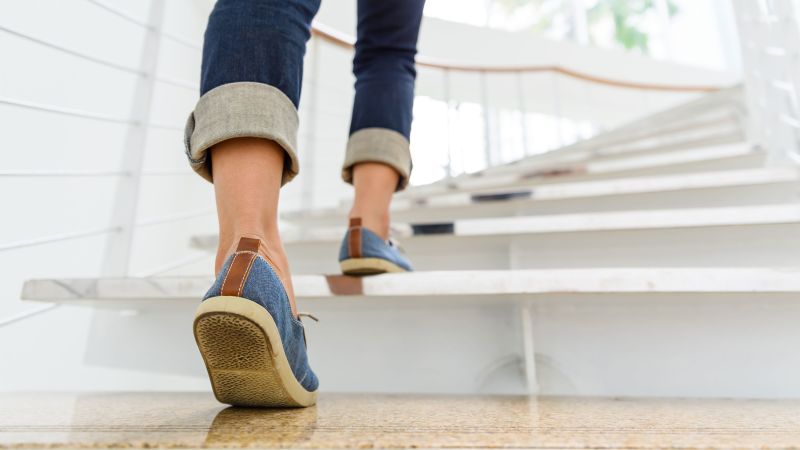- cross-posted to:
- simpleliving@lemmy.ml
- cross-posted to:
- simpleliving@lemmy.ml
Summary
-
A meta-analysis, published in February 2022, found that walking for 2-5 minutes after eating can help lower blood sugar levels.
-
This is because walking helps to clear glucose from the bloodstream.
-
Standing after a meal can also help, but not as much as walking.
-
The ideal time to go for a walk after eating is within 60-90 minutes.
Additional Details
The meta-analysis analyzed seven studies comparing the impact of sitting, standing and walking on the body’s insulin and blood sugar levels.
People in the studies were asked either to stand or walk for two to five minutes every 20 to 30 minutes over the course of a full day.
“Between the seven reviewed studies, the total activity time throughout the observation was roughly 28 minutes with the standing and light walking breaks lasting between 2 to 5 minutes,” Buffey said. Leisure activity death wellness STOCK
Standing was better than heading straight for the desk or the couch to sit when it came to blood sugar levels, but it didn’t help lower insulin in the bloodstream, the analysis found.
However, if people went for a short walk after eating, their blood sugar levels rose and fell more gradually, and their insulin levels were more stable than either standing or sitting, the study noted.
Walking is one of the best things you can do for your body. I never thought much of it until I got a dog and started taking him on walks a couple of times a day. I had no clue how much better regular walks would make me feel, despite being relatively healthy and active before.
Especially if you’re getting up in years. Even just some light walking everyday helps significantly in preventing or minimizing osteoporosis and muscle atrophy. Plenty of mental benefits too as well.
At a point, a sedentary lifestyle will rapidly catch up with you both mentally and physically. It also becomes a “use it or lose it” when it comes to bone and muscle health and significantly difficult if not practically impossible to reverse once it starts to fail.
Interesting that a post meal constitutional or post-parandial has been a staple for so long.
I have a friend who started doing 30-60 minute walks daily. He was diagnosed with depression… he feels much better these days (over a year later)
Now he can even bother to go to the gym etc
Also, probably a good idea to go easy on the carbs
Eat a balance. 40-30-30 is what I’ve heard. Ymmv. (40% carb)
Carbs are non essential. Humans dont need them at all.
And usually foods high in carbs are low in other nutrition. (Rice, pasta, bread etc)
But regular vegetables… eat whatever. They are pretty low in carbs but contain more nutrients than… rice.
The only advantage these high carb foods have… they are cheap. Really cheap.
carbs are non essential
Unless you want to live longer.
Both high and low percentages of carbohydrate diets were associated with increased mortality, with minimal risk observed at 50–55% carbohydrate intake. https://www.thelancet.com/article/S2468-2667(18)30135-X/fulltext
However like all dietary science: there is little that is settled. Processed sugars (low quality carbs) strongly correlate with being worse for you. The same cannot be said for whole grain sourdough or fresh fruit (high quality carbs).
Eating a fat and protein heavy diet based on animals has a 38% increase in mortality rate per year of being on the diet, but the same low carb diet using plant proteins seems to have a decrease in mortality.
It’s not settled but the studies mostly show that the best thing for you is to eat high quality foods and stop caring so much about macronutrients.
Yea, especially avoid food with lots of starch. It is worse than plain industrial sugar as it is basically pure glucose, all it needs is some saliva.
My grandfather helped manage his diabetes by walking immediately after every meal.
What am I, an Olympic athlete?
You might not be an Olympian, but we are all certainly Sisyphus pushing the rock everyday. 😄
Walking is awesome!
Also, bicycles.
As someone who loves to bike, I’m curious about how much time on a bike, at a slow to moderate pace, this translates to.
I thought it’s more like 20 minutes?
I’m not sure if the data you’re referring to comes from a different study, but this one found that taking short 2-5 minute walking breaks from sitting every 20-30 minutes throughout the day improves metabolic biomarkers. Standing breaks didn’t have the same effect. The CNN article is trying to say that taking a short walk after a meal can improve blood sugar levels, which is even simpler.
So, I think to get the benefits that the study talks about, it’s probably safer to assume that you would only get benefits by walking 2-5 minutes more than 2-3 times a day, anyway. Wikipedia’s articles still indicate 30-60 minute of walking a day, 5 day a week.
😊👍
* Me taking a nap immediately after eating *
- No, I don’t think I will.






